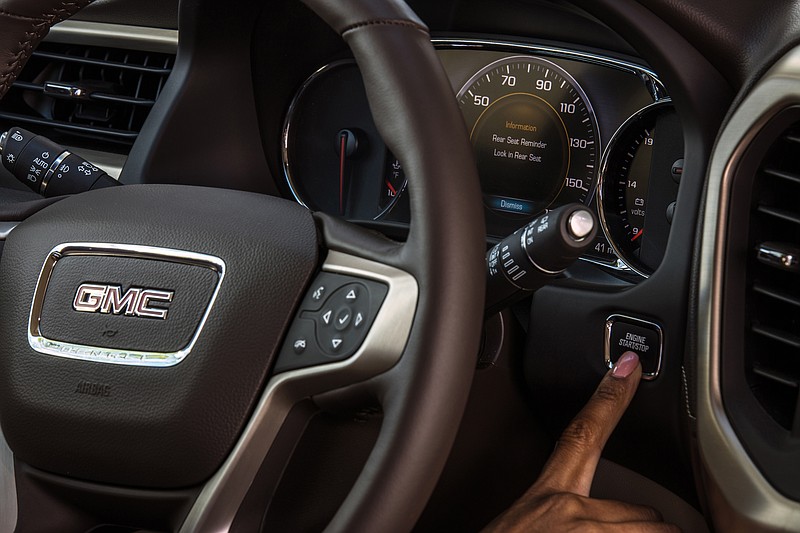A class action lawsuit filed last month in a Texarkana federal court accuses General Motors of selling cars and trucks with dangerous defective brakes.
Potential plaintiffs
A class action lawsuit filed against General Motors includes anyone who owns or leases or formerly owned or leased the following: a 2015 or 2016 Cadillac Escalade, a 2014 to 2016 Chevrolet Silverado 1500, a 2015 or 2016 Chevrolet Suburban, a 2015 or 2016 Chevrolet Tahoe, a 2014 to 2016 GMC Sierra 1500 or 2015 or 2016 GMC Yukon.Texarkana lawyers Jim Wyly and Sean Rommel filed suit Oct. 23 on behalf of John Harris, a Bowie County resident, and all owners of certain GM vehicles in Texas and across the U.S.
Harris bought a new 2015 Suburban in December 2014, according to the complaint. In early January, Harris and his wife began to notice the brakes weren't working correctly.
"More specifically, the brakes would seemingly function without incident the first three to four times when they were applied or tapped, but thereafter, the brakes would become hard and resist depression or require an increased effort to depress the brake pedal, but with no stopping ability," the complaint states.
Harris contacted the dealership from which he purchased the Suburban after noticing the braking problem.
GM was already aware of the problem and had issued a service bulletin in February 2015 concerning problems with the braking system, the complaint states. The complaint accuses GM of failing to notify consumers of the problem and of continuing to sell cars with dangerous brakes.
The complaint alleges that the repairs GM advised in its service bulletin don't fix the problem. Harris alleges his Suburban was picked up for repairs Jan. 31 and returned to him Feb. 4. Harris' wife was driving the Suburban Feb. 28 when the brakes became "hard" and would not depress. According to the complaint, Harris' wife crashed into another car when the Suburban's brakes experienced a "catastrophic" failure.
Harris contacted the dealership the day of the crash and expressed an opinion that GM should take the Suburban back. The suit alleges GM instructed the dealership to stop all work on the Suburban as it had opened a claim file and would be handling the problem.
GM allegedly inspected the Suburban in March and told Harris' wife later the same month that their inoperable new car was "really not our problem," the complaint states. The dealership from which the Harrises bought the Suburban were allegedly unable to make any headway with the corporate office, either.
GM allegedly told the dealership May 2 to make the same brake repairs to the Suburban. The dealership formally notified GM in writing and through a lawyer May 4 that it would not perform the same repairs that previously failed and demanded that GM resolve Harris' issue.
The complaint alleges that GM sent the Suburban to a second dealership in Bowie County where the same brake work outlined in the service bulletin was performed a second time. The complaint alleges GM sent Harris a warning in June to leave the car in the same condition it was in after the crash, despite having sent the car to a second dealership for repairs. Harris alleges his Suburban's brakes failed again while he was attempting to use it to launch a boat June 16.
"Currently, plaintiff's unsafe Suburban sits at his home, and because defendant GM cannot or will not repair it, it is wholly unusable and without value," the complaint states.
The complaint accuses GM of breach of warranty, breach of implied warranty, violations of the Texas Deceptive Trade Practices Act and violations of the Magnuson-Moss Warranty Act. The complaint asks that the court certify both a class of Texas GM vehicle owners and a national class of GM vehicle owners and that the plaintiffs be awarded a judgment that will fully compensate for their alleged losses.
The case has been assigned to U.S. District Judge Robert Schroeder III in the Texarkana Division of the Eastern District of Texas.

